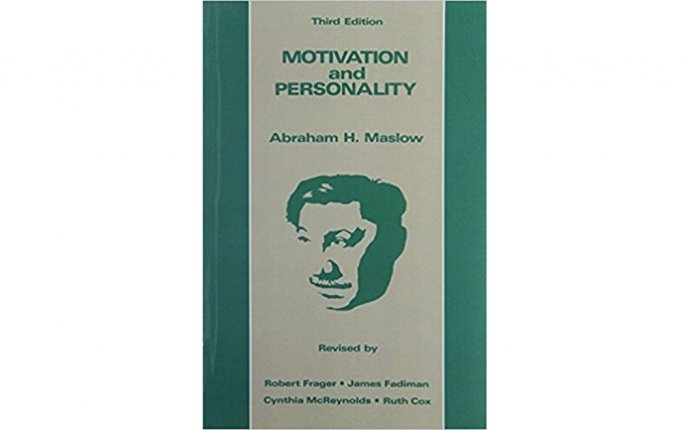
Maslow motivation and personality
Maslow’s hierarchy of needs intuitively strikes me as being a useful model of psychological development. Less obvious is what exactly is meant by the top of the pyramid: self-actualization. I didn’t have the patience or focus to read this entire book, which seemed vague and meandering at times to me. But I was very interested in the chapter titled, “Self-Actualizing People: A Study of Psychological Health.”
In the first chapter, “A ‘Psychological’ Approach to Science, ” Maslow argues that scientis
In the first chapter, “A ‘Psychological’ Approach to Science, ” Maslow argues that scientists have human motivations for what they do, and their truth isn’t necessarily more valid than anyone else’s. So the book begins by rejecting the concept of scientific objectivity. In the chapter on “self-actualizing people, ” the “cases” are people the author interviewed, as well as historical figures: Lincoln in his last years, Thomas Jefferson, Einstein, Eleanor Roosevelt, Jane Addams, William James, Schweitzer, Aldous Huxley and Spinoza.
The following are the characteristics of self-actualizing people, according to Maslow’s “study” of these “cases.”
They have more efficient perception of reality and more comfortable relations with it. They are cognitively able to perceive objective reality. They understand the real world of nature, not simply believing what they or others want them to believe. They are not threatened by the unknown, they are open-minded to discovery, and they are secure with their own ignorance.
They practice acceptance of themselves, others and nature. They are not guilty, anxious or ashamed; they stoically accept the sins, weaknesses and evils of human nature. They are comfortable with their own animal nature—eating, sleeping, having sex. They are not disgusted (literally) by reality, e.g., snot, feces, vomit, blood. They are not defensive. They don’t play mind games. They do not try to impress others. They accept their own shortcomings. However, they still feel bad about improvable shortcomings, vices, bad habits and that people and the world are not as they should be.
Their behavior is marked by spontaneity, simplicity and naturalness. They have unconventional thoughts, though not necessarily actions. A light cloak of convention may be cast aside, but they only rebel with a cause. They follow their own non-conventional code of ethics. They are self-aware about and able to control their own subjective desires. They are not simply motivated. They have a meta-motivation to develop themselves. “For them motivation is just character growth.”
They practice problem centering. They are focused on problems outside themselves based on philosophical beliefs in universal values; they are not ego-centered.
The have a quality of detachment and a need for privacy. They can appear aloof, and they enjoy solitude. They are reserved, calm, serene, objective, dignified in the face of misfortune and self-disciplined. They make up their own minds; they are not pawns of propaganda. They exercise their free will more than others.
They exhibit autonomy and maintain independence from culture and the environment. They have the will to be active agents. They are propelled by growth motivation, so they maintain serenity in bad circumstances. They believe the good life is inner-individual, not based on social status. They act independently of the opinion of others, even good opinion, because they only really care about self-development and inner growth.
They have a continued freshness of appreciation. The moment-to-moment basic experience of life can be thrilling, exciting and ecstatic. Their subjective experience is rich, because they enjoy reality. They have frequent feelings of gratitude, thankfulness for their blessings and good fortune.
They have mystic/peak experiences. They have transcendent/religious experiences, in which there is loss of self, including during sexual climax.
They feel “gemeinschaftsgefühl, ” a genuine desire to help the human race. They feel a love of humanity, fraternal, brotherly love. But they may act like an older brother to the average human. They may be like an alien to a typical person, because few really understand them.
They have deeper, more profound interpersonal relationships, but only with a few people who are themselves also self-actualized types of people. They are kind, patient and compassionate but hostile to those who deserve it.
They abide by a democratic character structure. They can befriend others regardless of class, education, political belief, race or color. They have the humility to understand that they can benefit from association with any type of person. Their elitism is for people of good character.
They discriminate between means and ends and between good and evil. They are strongly ethical and have definite moral standards. They are religious in the sense of being goodly, or even Godly, though they may be atheists. They experience day-to-day moments as ends, not means.
They have a philosophical, unhostile sense of humor. They have spontaneous humor intrinsic to the situation, and they laugh at the human condition.
They show creativeness. They exhibit originality and inventiveness, not Mozart-like genius; but rather, like the uninhibited naivety of a child, acting and doing things with character and personality, not in a conventional way.









